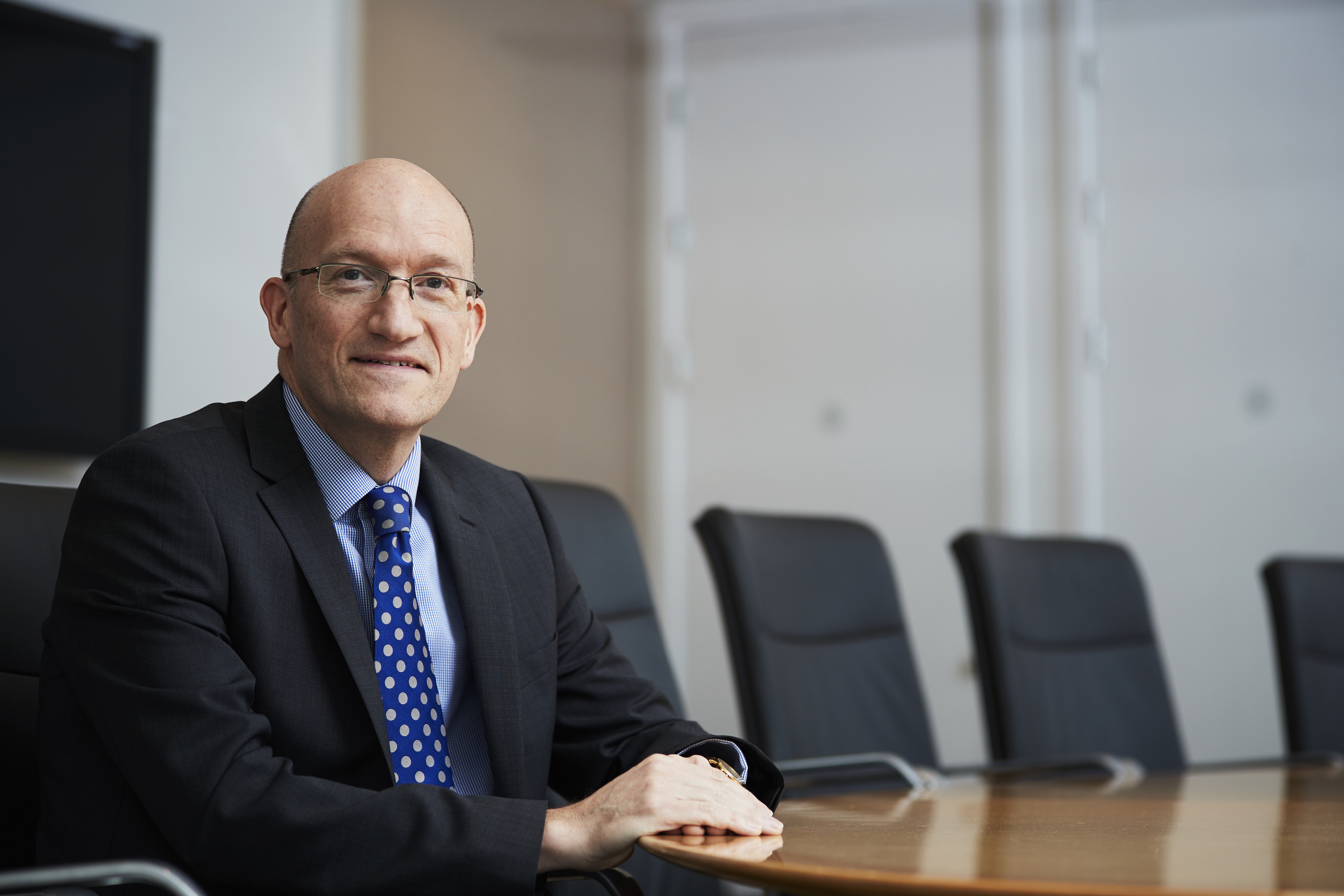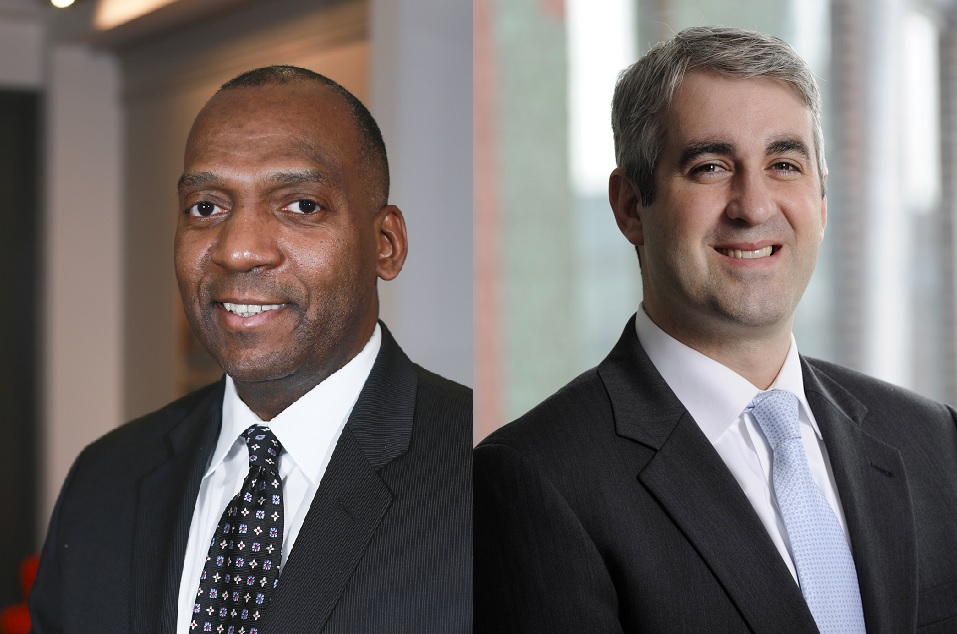How active ownership is shaping BP’s company strategy
Speaking at the Institutional ESG Investment Summit, Dominic Emery, VP, Long-Term Planning, BP answered questions from an audience of asset managers on the role that active ownership has played in helping the oil and gas industry to embrace energy transition
Sara Benwell POSTED ON 10/6/2020 3:04:03 PM

What has encouraged BP's rebrand from an oil company to an all-encompassing integrated energy company and where is the distinction between the two?
Dominic Emery: Frankly, it's the optimism about the opportunity in the energy transition. If we stand back and take a look at the amount of investment that's required to get us to two degrees and ideally to 1.5 degrees, it's somewhere between kind of 1 to 2 1/2 trillion dollars per year to achieve those Paris goals.
So if you're an energy company, the opportunity to invest into that bow wave is really quite compelling, so that's the optimistic view of it.
I think on the other side of the equation, the energy stocks and in particular oil and gas stocks are looking quite challenged at the moment and that's something of an understatement.
Many of the big US indices such as S&P - only five years ago oil and gas energy was making up 50%, but it now makes up 2.5% so that's an extraordinary change in perspective.
That's a function of the rise of tech stocks but also a function of the current demise the popularity of energy stocks and the realisation that many analysts are now not actually including any kind of terminal value for oil and gas assets
I also think this gets into some of the other questions at the heart of this, so the role of active investors and the role of the likes of the Climate Action 100+ by GCC and others has really helped us to triangulate where investors’ heads are at in this matter particularly around ESG.
What part has active ownership played in helping the oil and gas industry to embrace the energy transition?
Dominic: It's played a very significant part. The engagement that we've had both at board level and also at the executive level and through individual teams again with a number of the CA100+ group, has been crucial in helping to drive this forward
Having that quality of discussion and also the resolution that was that was presented to our annual general meeting last year has caused us to think more deeply about how we look at the resilience particularly of our oil and gas assets for the future, but also how we think about investment in the energy transition. So I think engagement has been really mission critical here
I also do think the quality of the discussion on the portfolio and the transition approach has been has been tremendous. So creating the common interest groups amongst investors like IGCC and CA 100+ has been has been very important
We’ve also had a good push from activist groups like Follow This making some very important points about how they have more confidence in us being able to do it than we have ourselves, which resonated to our AGM last year. This active engagement has been very important to help us in our transition
Clearly what we'd like to see is more of it. And dare I say people beginning to see that BP is sincere and serious about being net-zero.
Because inevitably we're going to say we believe this is a stock that is that has a number of great components in terms of that committed dividend, in terms of growth opportunities and we think in terms of ESG
Now, we're not so naïve as to think we’re there. We are just the starting gates but it is very compelling for us, it’s compelling, for our staff and we hope it’s compelling for our wider stakeholders too
91% of those asset allocators attending the conference say that a net-zero pledge is a key criterion for investment. What's your view on this and how does this feedback influence the commercial steps BP would be taking?
Dominic: It's great because we’ve made that net-zero pledge. At the heart of what we said back in February, this net-zero destination is a key criteria for us, so it's good to hear that that many companies are now seeking to do that and actually starting to move their net-zero pledges to even earlier dates
We're saying 2050 or sooner and I think that is still an appropriate time scale for us but it's very good to see that significant majority [of investment decision makers] are supporting companies that are making these pledges.
Is the push by oil and gas majors into green fuels more a PR push and why is BP being particularly vocal?
Dominic: This is not a PR push for us, the importance of the investment opportunity here as we go into the coming years and decades for us is going to be our lodestone and our guide forward.
We see a huge change coming, particularly in the latter decades but what we're seeking to do with our approach is perhaps get slightly ahead of that that rate of change with our investment plans and our decarbonization plans so absolutely not PR and if it was I think people would really see through it
Have the recent changes in working patterns due to the pandemic changed the intensity of active engagement?
Dominic: Clearly there is change and certainly the engagement has changed, there is absolutely no doubt about that but I would say we're still getting pretty active engagement albeit over Zoom or Teams or through various webinars
We're still getting very active engagement from our investors as quickly as we've laid out these new ambitions. Clearly there's less face-to-face and more virtual but nevertheless it's been pretty intense. And again the investors through CA100+ and individual investors we've managed to maintain I think a fairly high quality of engagement over the last several months.
How does BP work with the diversity between frontier and institutional activism in terms of operations on the ground and how that effects your company strategy?
Dominic: We now have a very deliberate group within our investor relations team that is focused particularly on ESG investors.
There's more mainstream ESG investor components which will include TCFD, but also those new processes and some quite interesting different ways thinking about the energy transition including some of the work around what the Bank of England are doing.
So, there are a range of different ESG components at the edge and what we are doing which is quite different to previously is we now have active engagement in those new frameworks.
Eventually you have to make a choice, so we can't be involved in everything but those which are the most relevant to our industry are those that we are seeking to be involved in.
Please Sign In or Register to leave a Comment.
SUBSCRIBE
Get the recent popular stories straight into your inbox




